Skibbereen is a 3.000 inhabitants town located on the Southern coast of Ireland, in one of the most rural and remote areas of the country. In 2015, in order to re-create a dynamic of opportunities in the region, a range of major companies, associations, and public players joined forces to build up a platform supporting entrepreneurship, connected to one of the fastest broadband connection in Ireland: Ludgate Hub.
After two years, the main results of the Ludgate Hub include the formulation of a digital strategy for a rural town, the creation of new jobs for the area, introduction of new families into the area, a boost of expenditure in building, and services.
Ludgate Hub illustrates how a concerted action supported by a coworking space might pave a set of new options to address the challenge related to the economical desertification of many rural zones in Europe and beyond.
We interviewed Gráinne Dwyer, CEO of Ludgate Hub, who told us more about the initiative.
Hello. Can you tell us how did the Ludgate Hub project started?
The initiative has been developed by a steering group consisting of a group of local entrepreneurs, digital ambassadors and business owners of local enterprises. The board felt it was important that the initiative came from the ‘bottom up’ and came from the community as it was a more sustainable method of town development. There was also a general feeling of neglect of the town by local authorities and national Government.
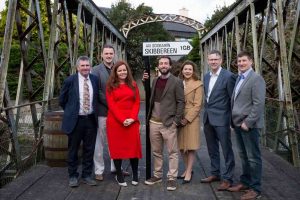
Picture: Emma Jervis Photography
The board of eleven members includes representatives from major organizations, such as RTÉ, the national broadcaster, Google, AIB bank, Vodafone, a.o.
Reasons why the group has become involved is firstly to create opportunities for the younger generations of the area and give them an option to live and work in the area when they are older. They aim to stem the tide of youth emigration and provide meaningful sustainable opportunities for the town in terms of connectivity, investment and jobs.
After the board was formulated, the next step was to identify buildings suitable to develop a digital hub. Corporate sponsors were sought to further support the development of the hub and to contribute towards the operational costs.
To help the board of 11 and the management team of two, the group found members of the public to help with the project through voluntary ambassador roles. The board recruited individuals interested in education, retail, agriculture and other key sectors of the project to lead sector specific projects.
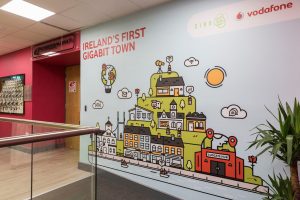
Picture: Emma Jervis Photography
It has to come from the bottom up
What were the initial purposes of the project?
The initial purpose of the project was to facilitate jobs and stimulate the local economy through a four pillar approach :
1 – The Ludgate Hub
Developing the Ludgate Hub was key, the hub is a 10.000 m2 state of the art coworking space with a 1GB connection.
The building was donated by a local businessman John Field and was once a cinema and then a bakery in the middle of the town. The hub has meeting rooms, training space and state of the art video conferencing facilities, & has attracted international start-ups from LA, Chicago, London, South Africa, Spain and world wide. The hub is now a beacon of innovation and has already started to encourage fringe enterprises and collaborative projects as a spin off.
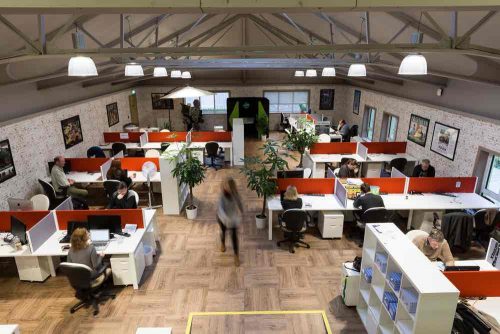
Picture: Emma Jervis Photography
Companies like the BBC, National Geographic, Google, Facebook and Reuters have all used our hub in the last six months.
The long term vision is to make Skibbereen a hotspot for technology start-ups and multinationals to locate and prosper at a global level enhanced by the 1GB connection.
The long term objective to create 500 direct jobs and 1000 indirect jobs via a sustainable digital economy for Skibbereen and the wider West Cork area.
Visions like these are unheard of in rural Ireland – but now connectivity is making the impossible, possible. We provide, mentoring and business advisory in the hub, we can also offer virtual mentoring and advice via video link.
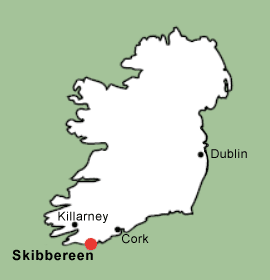
2 – Facilitate Digital Literacy
We knew we needed to reach all levels of our community – young and old. We wanted to create an inclusive society – digital for all a connected community.
A key pillar to our initiative was to make sure the community knew about our 1GB connection, but more importantly that they knew how to use it.
We rolled out iPad and tablet training classes, which enabled all members of our community to email, shop online, bank online and video call with their relatives worldwide. This combatted rural isolation and empowered our community.
We rolled out coding classes in our local secondary school enabling students aged 16-17 to learn how to code, and how to develop websites. We opened our doors to the local Coder Dojo group which train young people how to use programmes like Scratch, Minecraft and learn HTML. We have kids from age 6- 16 and their numbers have doubled since moving to the Ludgate Hub.
3. Create eStreet : encourage retailers to trade globally
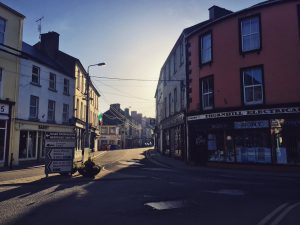 Ireland’s first initiative to encourage traditional retailers to trade globally.
Ireland’s first initiative to encourage traditional retailers to trade globally.
The third task was to economically enable our community, we developed Ireland’s first digital Main Street www.estreet.ie. eStreet is a collaborative, eCommerce model it is set to become Ireland’s first fully, inclusive eCommerce community portal.
The platform gained national and EU recognition for its solution to help combat rural disadvantage and economic decline; via a multi-pronged digital strategy.
eStreet is paving the digital path for other towns and areas to follow and shows rural towns how to help themselves to a better future. Eleven of Skibbereen’s retailers are pioneering this project to increase their online visibility, sales and open up to new markets.
4. Re- Brand rural Ireland
We created Ireland’s first National Digital Week a digital conference set in rural Skibbereen. The hugely successful event attracted 1,600 attendees to West Cork and hosted over 80 international and National speakers.
The vision for the event was to showcase that rural Ireland is ready to embrace technology and it certainly worked, Skibbereen is now considered the Digital Capital of Ireland.
What are the roles respectively played by Vodafone, Google, the Cork County Council, AIB, and all the others involved ?
All of our sponsors support us through corporate donations or free services, services include free legal support, or accountancy services.
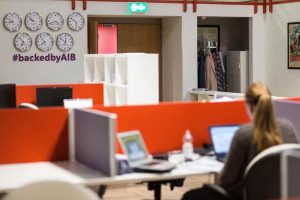
Picture: Emma Jervis Photography
Their motivations stem from believing in the regeneration of rural Ireland and the importance our rural areas have on our regions, our cities are heavily reliant on the success of the rural hinterlands.
All companies that have supported us have done so as a leap of faith to back a very ambitious project, their commitment to the Ludgate Initiate reinforces their own ambitious targets and support for SMEs nationally.
We believe the hub is sustainable as the community is heavily invested in the project, both the community and board are safeguards of its future success.
Since our inception in 2015 we were declared Ireland’s first rural digital hub – a case study which has inspired 22 other towns and villages to develop their own community backed enterprise initiatives. As 95% of our projects are privately funded through donations or corporate sponsorship we have a strong track record in raising capital to support the project.
The factors that ensures its success is to curate the Ludgate Community, by ensuring the needs of the community are met, that we can offer the same services as urban areas to grant equal opportunities for rural start-ups as those of their urban counterparts.
It is essential that we have a continuous stream of seed fund capital to further encourage start ups to relocate here, it is also essential that we maintain a stream of mentors to encourage and support start-ups in the Ludgate Hub.
Is the coworking space open to anyone?
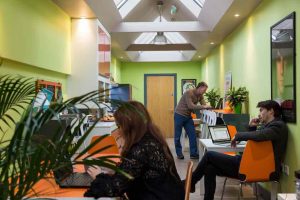 The coworking space is open especially for ‘digitally enabled businesses’, we do not take in call centre staff or manufacturing companies. We aim to attract companies which will use or bandwidth but are complementary to each other, e.g.. we will not take in ten website developers as it will lead to unsustainable competition.
The coworking space is open especially for ‘digitally enabled businesses’, we do not take in call centre staff or manufacturing companies. We aim to attract companies which will use or bandwidth but are complementary to each other, e.g.. we will not take in ten website developers as it will lead to unsustainable competition.
Our main tenants include, web designers, app developers, graphic designers, animators, online services, online tourism providers, online education platform providers and services which are traded online.
How about the results and impact of the Lugdate Hub project so far ?
The main results of the Ludgate hub include the formulation of a digital strategy for a rural town, the main benefits include, the creation of new jobs for the area, introduction of new families into the area, a boost of expenditure in building, and services.
In total the hub has engaged with:
- 4 University Collaborations
- 250+ Active Members of the hub a month
- 25 Co-Working Companies
- Supported 15 Community Groups
- Serving West Cork Population of 80,000+ (West Cork)
- attracted 1600 Attendees to National Digital Week every year
- Attracted 400 Pledges of support from National & International Companies
Some other benefits are :
- We have delivered coding classes to 25 students per year
- We have delivered digital innovation classes to 15 students per year
- We have taken on over 40 secondary school students per year for training and work experience
- We have delivered iPad training for 45 people in 2016 aim to deliver to 120 people in 2017
- We have enabled 11 rural retailers to trade online through our eStreet platform.
- We have employed over 11 people throughout the year
- Spent over 1.8 million euro on local services & trades since 2015.
- Have a seed fund of €500,000 euro, donated by private individuals attracting companies to Skibbereen – including the funding of four start up companies.
- We have supported the ‘coder dojo’ club of 65 kids who learn coding, minecraft and web development.
- We have supported over 2,800 bed nights in the local area due to Ludgate events and operations.
- We have attracted over 15 new Ludgate members to permanently move to West Cork with their families
What are the main challenges you had to face rolling out the project ?
Our greatest challenges include local services, not meeting the needs of tech start-ups (eg. local solicitors with little start up experience). However all of our local service providers have retrained or provided new specialists to meet the needs of our tech start ups.

Picture: Emma Jervis Photography
Also mention the lack of Government funding. The largest challenge with regard to the setting up of the Ludgate Hub is the lack of supports for capital funding. e.g.. funding to support the capital refurbishment of a building, or to assist with the internal reconfiguration of a building.
In terms of marketing, due to our large marketing presence, we have been inundated with requests for tours of the hub. As our human resource hours are tight, tours can take up too much time of our working day and hence we have reduced access to the hub and declined tours due to lack of resources.
Ultimately, not having a blueprint to work from, we did not engage in a feasibility study as we have very little state data on who lives in the area and what sector they are in. Census records do not depict adequate information for rural areas to demand a feasibility study of a project of our size.
Why is the 1GB bandwidth capacity such an important element in the whole storyline ?
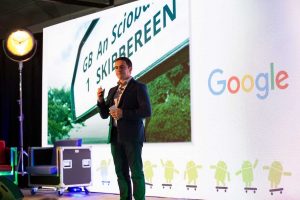
Picture: Emma Jervis Photography
We started this project 18 months ago, & realising a vision for rural Ireland as a ‘Gigabit Society’ was not an easy task – but we engaged with the community early on, we held information evenings, town hall meetings and organised inclusive workshops so the community – and the community alone would shape this project.
We looked internationally and saw what was achieved in rural Kansas, the Google Kansas project landed a 1GB connection and within two years over 121 new companies were formed – could this be achieved in rural Skibbereen? With the 1GB connection, it will give the young people of Skibbereen the opportunity to create the next Google or Facebook.
The board pushed to get a 1GB connection. SIRO a joint venture between ESB and Vodafone heard our story and came on board as a partner and selected Skibbereen as a demo town for their fiber optic 1GB roll out. Skibbereen became the first 1GB rural town in Ireland.
I think in summary our visionary 1GB connection – which does not create an environment which places rural Skibbereen on-par with urban centers, but excels them further was one of the most successful aspects.
We have companies moving from the US, Spain, and London to Skibbereen which is something conceived as impossible in the past, however with our 1GB connection now everything is possible.
Could coworking spaces play a key role revitalizing rural areas bringing back skilled well-paid job?
I think coworking spaces are the future for rural areas as it facilitates communities to get access to research, access to meeting spaces and networks, ideas, funding, and mentorship.
Communities that feel confident, inclusive, organised, and those that ultimately feel influential are those that are most likely to succeed.
Coworking spaces are the future for rural areas.
Looking ahead 30MBs is not enough for rural areas a 1GB – 10GB vision is needed. Key opportunities lie in the future of mobile workers as by 2020 80% of large corporations will offer agile working. We need to give young people the opportunity to help shape their home communities.
We need to support coworking spaces, give opportunities for smaller businesses to become digitally enabled and give an opportunity for the incubation of companies in rural areas. We need communities inextricably linked to the development of digital hubs – diversifying all local rural sectors of their local economies.
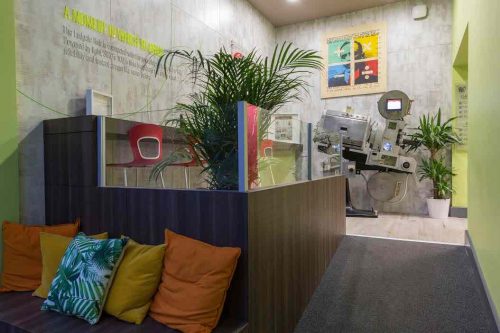
Picture: Emma Jervis Photography
The core strengths of our project is a strong organising board, access to capital and community support. Communities who want to develop their own projects need to spend adequate time planning and finding out what will work with their own local strengths.
Every community needs to find their niche and USP. Communities need to ask themselves what will attract people from urban areas to move to rural areas, they need to package those offerings and market it.
Communities also need to look internationally for examples of best practice or successful case studies eg.
Google Kansas is an example of a 1GB connection which transformed the region, attracting 121 new companies from 2012-2014 and spurred on over €3 million worth of investment in projects across many sectors.
The core strengths of our project is a strong organising board, access to capital and community support
Ludgate Seed Capital Funds is the startup program you are running. Who is supporting it?
We run an open call for start-ups to relocate to Skibbereen since November 2015, the program is very attractive for start-ups as it not only provides seed capital but a wealth of world-class mentorship, success is only a part of a roadmap for seed companies which locate in the Ludgate hub.
All companies that locate here have access to our sponsor supports including support from AIB, Ronan Daly Jermyn, Moore Nathans and KPMG.
How different are rural digital businesses when compared with their “urban” peers? Are their clients rural only?
No we believe there is no real difference, if anything rural businesses are becoming more savvy as they do not have the luxury of a natural domestic market, rural businesses believe opportunities are now global.
Rural businesses believe opportunities are now global.
What can the Ludgate experience teach other rural communities in Europe who experience economic desertification?
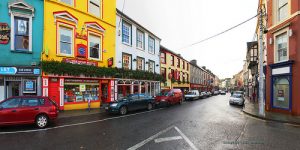
Source : Flickr
The Ludgate Hub was only made possible due to many conditions :
1. Broadband connection
Broadband was the upmost important factor to the success of the project. Our Siro/ Vodafone 1Gb connection, not only put us on par with urban areas but excelled our rural town further than urban areas.
The combination of the 1Gb connection in the town now meant that we had the same broadband speeds as Singapore which was a pull factor for digitally enabled businesses which needed this high-level connectivity (eg. web developers, designers, fin tech, online services, video production). The high-speed connection has attracted high-value jobs which have a greater impact on the local economy than entry level/graduate jobs like (call center services or customer support).
The combination of the 1Gb connection in the town now meant that we had the same broadband speeds as Singapore which was a pull factor for digitally enabled businesses
2. Skibbereen’s geographical position.
Skibbereen is located 100kms from its nearest large urban center (Cork City) making it an undesirable location for an effective commuter town – this creates opportunities and challenges for the town. But This creates a busy town atmosphere with cafes, restaurants, and shops full throughout the day. The town is also located 2kms from the coastline in the South West of Ireland along the Wild Atlantic Way. The area is known best for tourism, outdoor activities, and artisan food.
So, the area acts as an ‘alternative’ option for people to work from. The town has a number of primary schools (ages 4-12) and secondary schools (ages 12-18) with the capacity to take on new students at all times. This is in stark contrast to urban schools which often have two-year waiting lists or suffer from over crowding.
The town has a number of primary schools (ages 4-12) and secondary schools (ages 12-18) with the capacity to take on new students at all times. This is in stark contrast to urban schools which often have two-year waiting lists
The availability of education for young families is a very attractive offer for those working in Dublin city and acts as a pull factor to the area.
Projects like Ludgate has attracted high-level workers away from Dublin, these workers are often high value to a company and the company will allow remote working to retain their staff. Rural digital hubs like Ludgate can act as an effective counter-balancing measure to the congestion seen in our capital city.
3. Community Support
We engaged early on with the local citizens and community by hosting ‘town hall’ style meetings. Our first meetings kicked off inviting various stakeholders in a range of sectors to attend. Stakeholders included; local business and service providers, retailers, teachers, farmers, students and local authority officials.
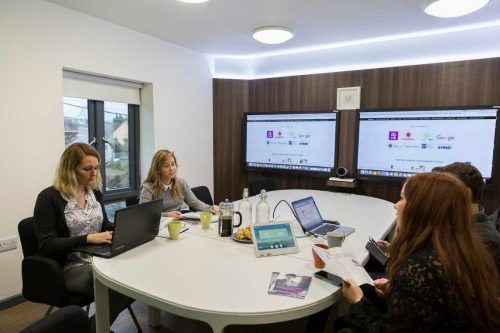
Picture: Emma Jervis Photography
Our community meetings were transparent and informative which led to trust building in the community, the style of the meetings was inclusive and we asked attendees to help shape the early plan for the project. By keeping the community informed we gained significant support from the beginning as they felt the project was theirs from the start.
The board of 11 members who created the project all work on a pro-bono basis, their expertise and international network was a crucial part of the success of the project. Our core sponsors AIB have been instrumental to the success of the project, and have truly shaped the direction of where we are going into the future.
Packaging and marketing of the town: We needed to get the town to sell ‘itself’, so we worked with the local chamber of commerce to help them to do up their website. We encouraged banks and service providers (accountants, solicitors etc) to make their services “start up” friendly, and to make their services seamless for young people to access who are returning to the area from international locations.
Join Coworking Europe Conference for more insights, data and connections!

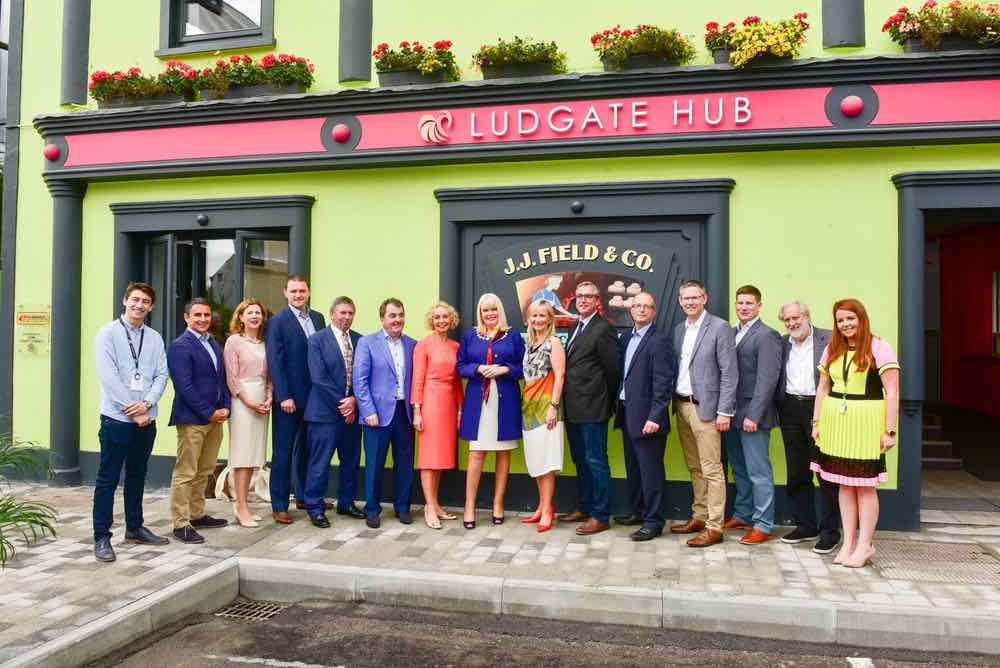


0 Comments